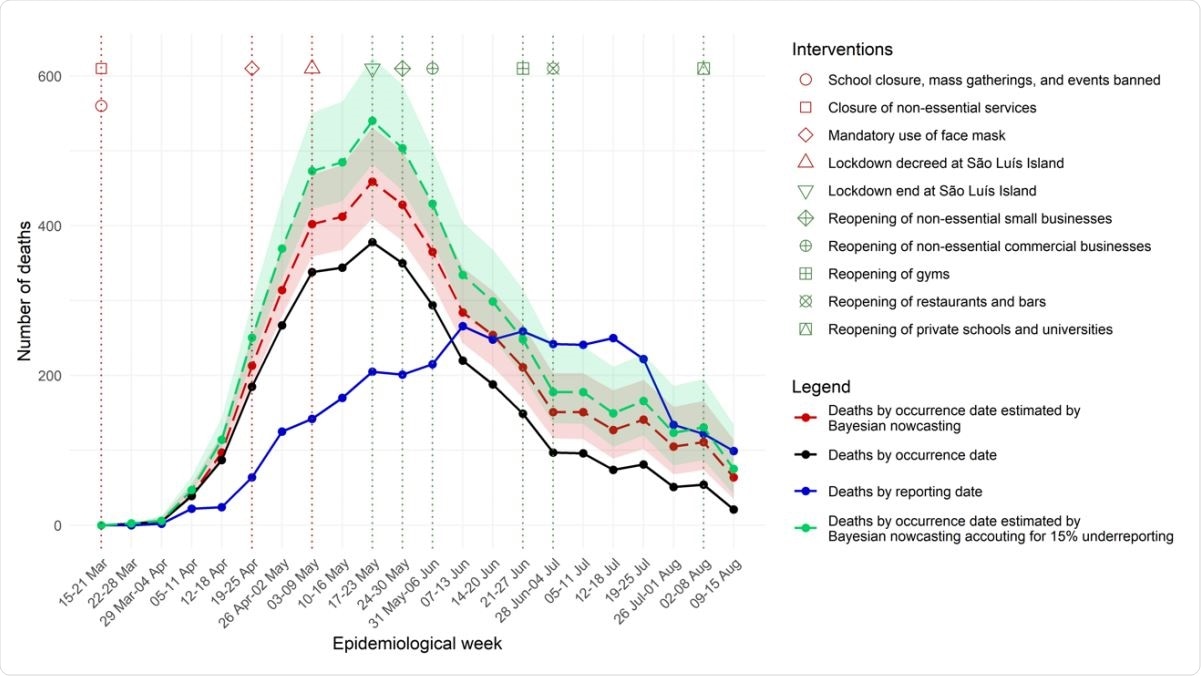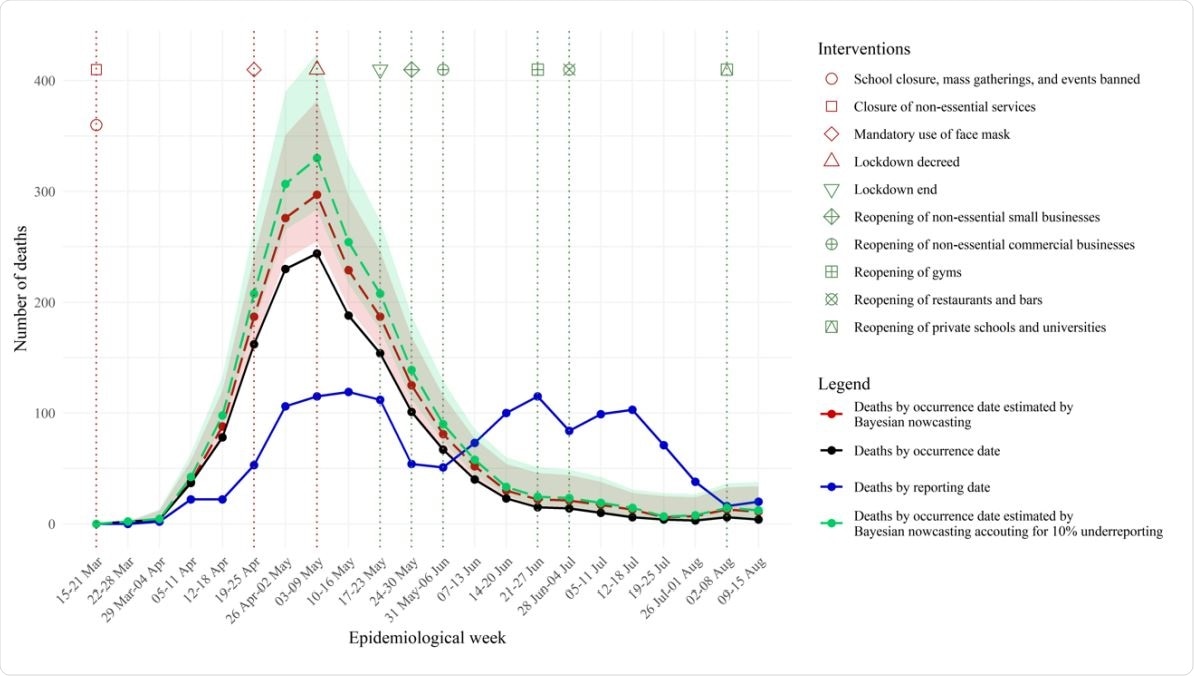
 This news article was a review of a preliminary scientific report that had not undergone peer-review at the time of publication. Since its initial publication, the scientific report has now been peer reviewed and accepted for publication in a Scientific Journal. Links to the preliminary and peer-reviewed reports are available in the Sources section at the bottom of this article. View Sources
This news article was a review of a preliminary scientific report that had not undergone peer-review at the time of publication. Since its initial publication, the scientific report has now been peer reviewed and accepted for publication in a Scientific Journal. Links to the preliminary and peer-reviewed reports are available in the Sources section at the bottom of this article. View Sources
Alcione Miranda dos Santos and colleagues say the estimated prevalence of detectable antibodies (seroprevalence) was the highest and closest to the herd immunity threshold reported to date. The infection fatality rate was also one of the lowest reported so far.
The seroprevalence of total antibodies against SARS-CoV-2 was as high as 40·4%, which the authors say is the first time a prevalence rate in this range has been reported.
“Our data suggests that herd immunity may be achieved sooner than expected,” writes the team.
A pre-print version of the paper is available on the server medRxiv*, while the article undergoes peer review.

Weekly number of deaths by occurrence and reporting date, and estimated by Bayesian nowcasting from 15 March to 15 August, State of Maranhão, Brazil, 2020
Brazil has been one of the most severely affected countries
Since the COVID-19 outbreak began in Wuhan, China, late last year, Brazil is one of the countries that have been most severely affected by the pandemic.
The first case was identified in the country on February 26th, 2020. By August 20th, SARS-CoV-2 was reported to have infected 3,501,975 people and caused 112,304 deaths – representing the second-highest number of COVID-19-related deaths in the world.
Brazil’s response to the pandemic has been controversial, testing capacity has been low, and the government’s uncertainty over social distancing measures has meant the population received mixed messages.
Subsequently, social distancing was never implemented to the extent that would be sufficient to curb disease spread and contain the pandemic.
Located in the Northeast region of Brazil, Maranhão is one of the states where SARS-CoV-2 rapidly spread early on during the pandemic. The first case was reported on March 20th, and by August 20th, the number of COVID-19 related deaths had reached 3,315.
The authors say the fatality rate peaked in May and started to decline after that.

Weekly number of deaths by occurrence and reporting date, and estimated by Bayesian nowcasting from 15 March to 15 August, São Luís Island, State of Maranhão, Brazil, 2020
The herd immunity threshold is still being debated
The threshold that would constitute herd immunity is still under debate, with some reports suggesting 60-70% of the population would need to have been infected and others estimating figures as low as 10 to 20%.
The authors say that for Brazil, few population-based studies on the prevalence of SARS-CoV-2 have been performed and that they have mainly used lateral flow immunoassays with finger-prick testing. These tests can return false-negative results and lead to underestimation of the true infection rate, warn the authors
“Therefore, population-based surveys using more sensitive diagnostic tests are warranted,” says the team.
What did the current study involve?
Miranda dos Santos and colleagues conducted a population-based household survey involving 3,156 participants residing in the State of Maranhão between July 27th and August 8th and estimated the overall seroprevalence of SARS-CoV-2 based on serum testing by electrochemiluminescence immunoassay.
The researchers report that the seroprevalence of total antibodies against SARS-CoV-2 was 40·4%.
“To the best of our knowledge, this is the first population-based study to report a prevalence rate in this range, for an area as big as Italy,” writes the team.
Adherence to the non-pharmaceutical interventions was generally higher at the beginning of the pandemic than it was during the last month. Adherence to social distancing fell from 52.7% at the beginning of the pandemic to 37.4% during the last month, while adherence to mask wearing fell from 61.4% to 55.5%.
SARS-CoV-2 infection rates were significantly lower during the last month among mask wearers and those who distanced from others by at least 1·5 m, compared with those who did not adhere to these measures.
One of the lowest infection fatality rates reported to date
The overall infection fatality rate (IFR) was 0·17%, but was higher among males and elderly individuals.
“The IFR in Maranhão is one of the lowest reported to date,” writes the team.
The team says the COVID-19 pandemic peaked in the state between May 17th and May 23rd, 2020, and that since then, the fatality rate has been falling.
Economic activity has slowly been increasing since many of the mitigation measures started to relax. Almost three months following the relaxation of social distancing measures, the number of reported deaths remains low, despite community mobility increasing.
Maranhão may be more than halfway through the herd immunity threshold
The authors say that to the best of their knowledge, the seroprevalence of SARS-CoV-2 estimated in this study was the highest and the closest to the herd immunity threshold reported to date.
“Although there is still doubt about what this threshold is, our data suggest that it is at least 40%, and it does not seem to be as low as 20% as it has been suggested by some,” they write.
The team says the findings suggest that Maranhão is more than halfway through the herd immunity threshold.
“Taken together with the data, our data suggests that herd immunity may be achieved sooner than expected,” concludes the team.
As of today, Brazil reports over 3.95 million SARS-CoV-2 infections and more than 122,000 COVID related deaths.

 This news article was a review of a preliminary scientific report that had not undergone peer-review at the time of publication. Since its initial publication, the scientific report has now been peer reviewed and accepted for publication in a Scientific Journal. Links to the preliminary and peer-reviewed reports are available in the Sources section at the bottom of this article. View Sources
This news article was a review of a preliminary scientific report that had not undergone peer-review at the time of publication. Since its initial publication, the scientific report has now been peer reviewed and accepted for publication in a Scientific Journal. Links to the preliminary and peer-reviewed reports are available in the Sources section at the bottom of this article. View Sources
Journal references:
- Preliminary scientific report.
Miranda dos Santos A, et al. Population-based seroprevalence of SARS-CoV-2 is more than halfway through the herd immunity threshold in the State of Maranhao, Brazil. medRxiv, 2020. doi: https://doi.org/10.1101/2020.08.28.20180463
- Peer reviewed and published scientific report.
Silva, Antônio Augusto Moura da, Lídio Gonçalves Lima-Neto, Conceição de Maria Pedrozo e Silva de Azevedo, Léa Márcia Melo da Costa, Maylla Luanna Barbosa Martins Bragança, Allan Kardec Duailibe Barros Filho, Bernardo Bastos Wittlin, et al. 2020. “Population-Based Seroprevalence of SARS-CoV-2 and the Herd Immunity Threshold in Maranhão.” Revista de Saúde Pública 54 (December): 131. https://doi.org/10.11606/s1518-8787.2020054003278. https://www.revistas.usp.br/rsp/article/view/180638.